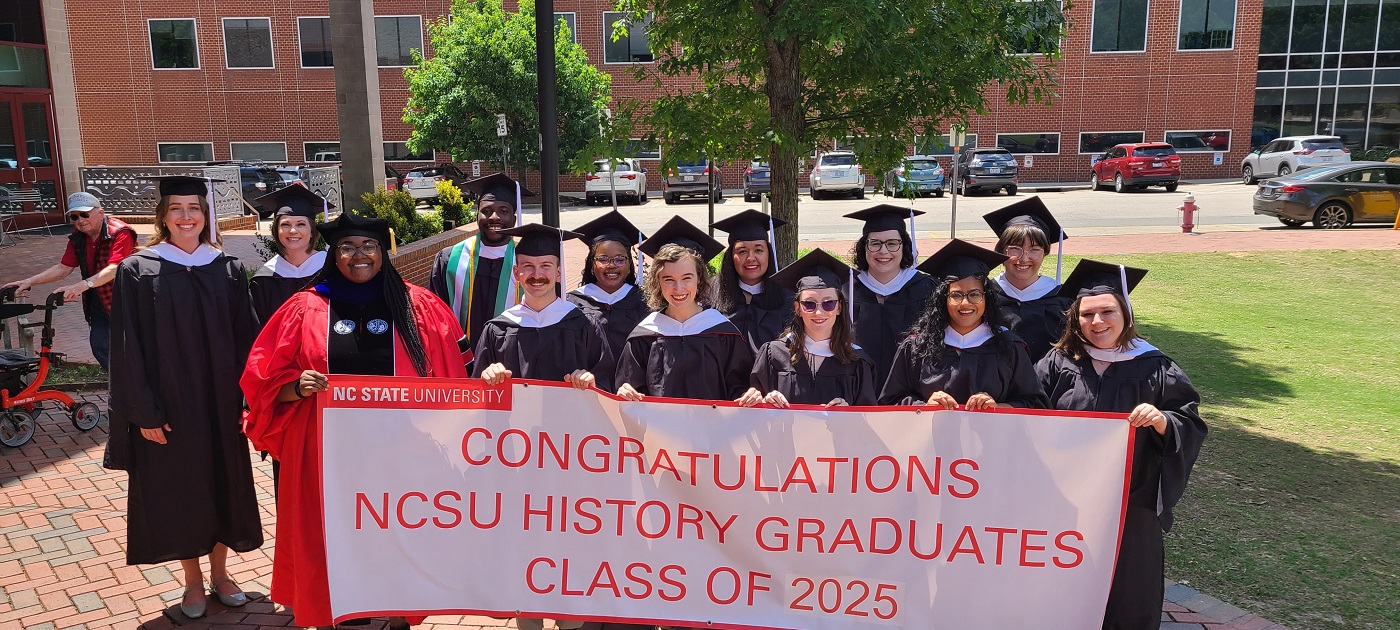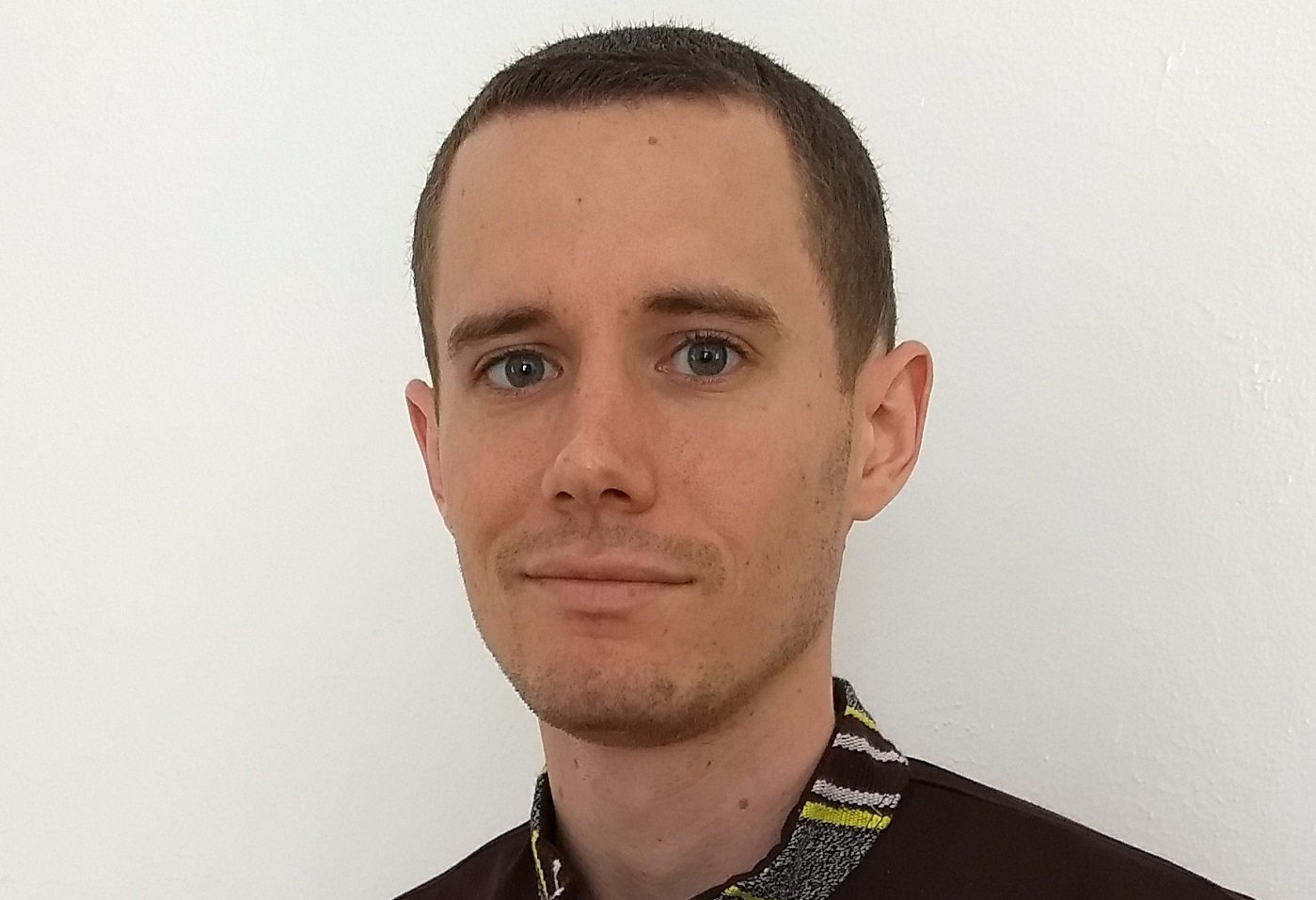Public History in Prague – A Tale of Two Students
This past summer, both undergraduate and graduate students traveled for two weeks with Public History faculty members Drs. Alicia McGill and Verena Kasper-Marienberg to Prague, Czech Republic as part of a program administered through the NC State Study Abroad Office, in partnership with NC State’s European Center. To get students’ perspectives on the trip, we followed up with undergraduate student, Katie Boatner, a senior history major whose research focuses on shifting narratives within the Soviet bloc and Wendy Vencel, a second year Public History PhD student, whose research focuses on medieval archaeology and its uses in forming national narratives and how people today interact with those narratives. Prior to travel Boatner took a survey course on early modern European history and Vencel completed an independent study course which focused on cultural heritage studies and on her own research. Both also took a course in public history which explored topics in history and memory in Central Europe.

Because Boatner has personal and linguistic experience in Poland and Russia and has been to Prague twice, the opportunity to go back, especially with public historians leading the group, made complete sense to her since as she says, “Public History is what I want to do with my life and my research is completely based within public history.” Boatner also has a particular interest in the Terezin Concentration Camp and Petr Ginz, a teenager who produced a magazine, Vedem, and a science fiction novel in the short time he was imprisoned at the camp before being sent to Auschwitz. Boatner was able to study Ginz’s work within that setting, and plans to ultimately digitize it using the 3d laboratory at NC State to make it accessible to all students.
Vencel previously studied abroad as an undergraduate and was so inspired that she decided to go abroad for her Master’s degree which she received from the University of Edinburgh. Given that Vencel studies European history and public history it was a no brainer to travel to Prague with NC State’s Study Abroad Program.
Although the main focus was Prague, students also spent time in Bratislava and Vienna. A highlight for Boatner because it was so pertinent for museum studies, was meeting with the curator of a special exhibition on science fiction and futurism at the ethnographic Weltmuseum in Vienna. Said Boatner, “I don’t know how I would ever get to be in that situation without the organization from Professors McGill and Kasper-Marienberg. It really was amazing opportunity for all of us.”

Though the students had an itinerary that included visiting museums, historic sites and attending lectures, they also were encouraged to go out and explore the city on their own. Boatner especially enjoyed a day spent in Visihrad where she toured a centuries old chapel with Dr. McGill and Public History Master’s student, Ginni Leeman. For Vencel, an impromptu visit to Bratislava, a formerly ruined now rebuilt castle in Slovakia which features medieval exhibits with finds from the castle complex was a high point of the trip. While in Bratislava she also visited the ruined pre-medieval Devin Castle, on the border with Austria. Said Vencel, “Devin was a great example of how a historic site can show different layers of history. Parts of it date to Late Antiquity, but at the same time it remains a popular location for Slovakian politicians to make speeches. Devin is a great example of how the lifespan of castles is much longer than the medieval period we associate with them.”
As part of study abroad, undergraduate and graduate students had to complete several projects . They did a museum site review and created a digital walking tour using sites in Prague as examples or symbols of Czech nationalism. Undergraduates primarily did the research while graduate students had a more curatorial and supervisory role. For Boatner, the collaborative nature of this project was especially important because it taught her how to write and edit with other people on one cohesive public history project.
While in Prague, both Vencel and Boatner attended an international heritage conference (HERITAGES Past and Present – Built and Social) organized by the Architecture, Media, and Politics Society and co-hosted by two Czech Universities. Vencel presented her paper, “Memory & Place of Royal Saints: A Comparative Case Study of the Royal Chapels of Saints Margaret and Wenceslas” which focused on a chapel at Prague Castle which she had just visited. According to Vencel, “The AMPS conference was a great opportunity to step outside the world of history and interact with many different people working in heritage worldwide. I was able to connect with other graduate students and professionals who are interested in the ways we can look at the medieval period through public history. It was also great to receive feedback on my own research and get the opportunity to publish it through the conference.”
Wendy’s dissertation will focus on medieval archaeology and its uses in forming national narratives and how people today interact with those narratives. Her research currently focuses on castle complexes and castle tourism (particularly castles in Scotland) and why people choose to go abroad to visit castles.
Boatner is finishing up her senior year and applying to Public History programs including the Public History PhD program at NC State.


